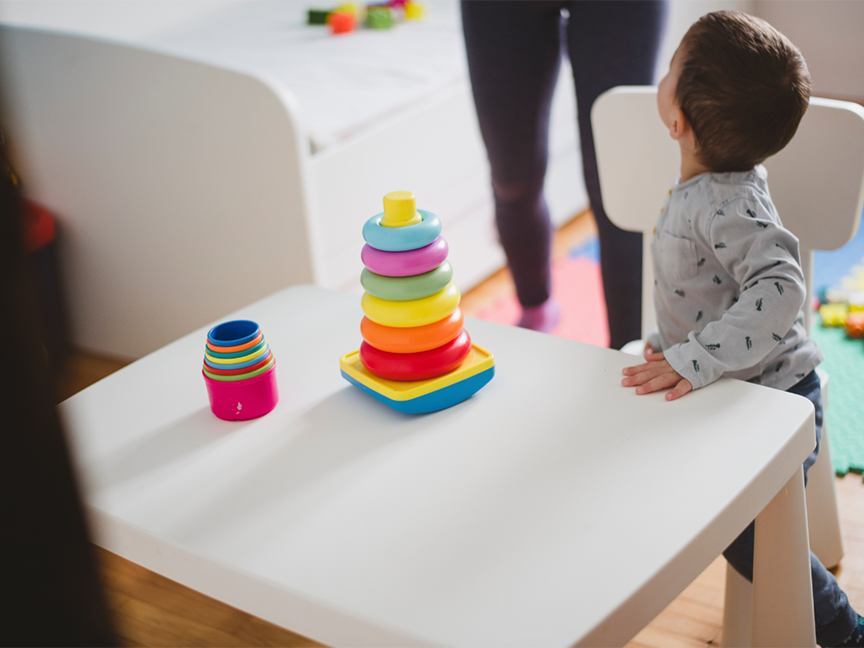
Think Tank
An American Toymaker Doubles Down on Sourcing in China During the Pandemic

A least one U.S. consumer-products manufacturer has no intention of giving up on China anytime soon.
Kids2, the online identity of Atlanta-based Kids II, Inc., designs and manufactures toys for infants and toddlers under several high-profile brands, including Baby Einstein, Bright Starts and Ingenuity.
Kids2 offers hundreds of different products and maintains affiliate operations in multiple countries. But perhaps the most significant detail of its global supply chain is a continuing commitment to making product in China. And it’s not just the presence in China that sets Kids2 apart from manufacturers that are worried about supply chain congestion, rising wages for Chinese workers, U.S. tariffs on Chinese imports, and the simmering trade war between the two countries. Instead of pursuing the traditional path of engaging a contract manufacturer in China, Kids2 opened its own factory there, in the southeastern city of Jiujiang.
Kids2’s decision to double down on China is the product of relationships that it’s built over more than 20 years with local manufacturers and logistics providers, says John Sikes, executive vice president of global operations. “They’ve helped play a key role in our ability to navigate challenges, not only economic but also due to the pandemic.”
Like nearly every importer of consumer goods today, Kids2 has had to grapple with severe delays at U.S. ports, especially Los Angeles and Long Beach, where containerships in some cases have waited weeks to unload their cargoes. The company has also experienced brief shutdowns of its Chinese factories due to COVID-19. But it’s been able to mitigate the impact somewhat by leaning on a global network of manufacturers and the selected use of alternative port gateways.
One dilemma that Kids2 didn’t encounter was a marked shortage of product during the 2021 holiday shopping season. The company saw gridlock coming, and front-loaded orders significantly in the second quarter of the year. It was even able to fill retail shelf space that would normally go to competitors that couldn’t get product to the store because they lacked Kids2’s foresight. “We got a lot of goods manufactured earlier than normal,” Sikes says. “That enabled us to get our in-stock rate in the 90s by the holidays.”
Of course, Kids2 had to increase its warehousing capacity to store the extra inventory. For that, it relied on third-party logistics providers to come up with the necessary space.
“You get good at this stuff,” Sikes says. “We planned for the worst. We even over-ordered, knowing that we would need that [product] in the event of disruptions.”
Some might question the timing of Kids2’s decision to stick with China: It opened its own factory just two years ago, at the height of the COVID-19 pandemic. The facility has been fully operational for a little over 12 months. (The company supplements production in China with a couple of joint ventures and a handful of independent vendors.
Sikes touts the advantages of vertical integration in the company’s supply chain, including lower logistics, labor and overhead cost. In addition, Kids2 can keep a closer eye on its valuable intellectual property. “We’re a very design-oriented company,” he says. “We can turn SKUs on quickly, and deliver out of the factory faster. This is a good way for us to go to market.”
American companies manufacturing in China are under increasing pressure to ensure that factory workers there are being treated fairly and ethically. Such concerns have mounted in recent months with reports of mistreatment, enslavement and torture of ethnic Uyghurs in Xinxiang Province. All of which requires that companies outsourcing production to China maintain deep visibility over their supply chains.
Sikes says Kids2 has the advantage of selling to major retailers such as Walmart Inc., which mandates strict oversight and auditing of factories making product that end up on its shelves. Kids2 itself participates in those audits, he says.
In fact, Sikes directly manages the Jiujiang factory, a task that has become more challenging with lockdowns and travel bans imposed by the pandemic. During that time, the company has had to rely on reports by employees and trusted partners onsite, he says.
Maintaining an effective supply chain in China is a delicate balancing act, Sikes says. Having large fixed infrastructure in the country gives Kids2 more control over product design and manufacturing, but it could also make it more difficult to adjust should future developments require a change.
That said, Kids2 is always looking at possible sourcing alternatives, whether in India, Vietnam or elsewhere. “We’ve got the talent in China,” Sikes says. “A lot of knowledge of the toy industry sits there. We’re certainly going to remain there, but we’re a very entrepreneurial company, and have the ability to pivot very quickly.”






